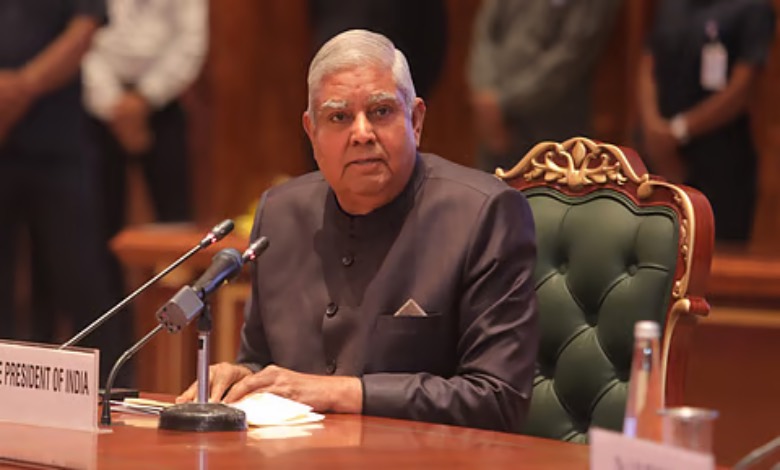
New Delhi: Jagdeep Dhankhar has unexpectedly resigned from his position as Vice President of India, citing pressing health concerns. In a letter to President Droupadi Murmu, the 74-year-old leader announced his immediate departure from office to “prioritise health care” as advised by his doctors, in accordance with Article 67(a) of the Constitution.
Also read: Jagdeep Dhankhar Resigns as Vice President of India, Citing Health Reasons
The resignation, which occurred just after the start of Parliament’s Monsoon session, brings an end to a tenure often characterized by clashes with opposition parties. Dhankhar, who took office in August 2022, was not due to complete his five-year term until 2027. His sudden exit leaves a constitutional vacuum and sparks questions about his successor.
Here is a 10-point breakdown of the situation and what lies ahead:
- Health Concerns: Dhankhar’s health has been a known issue; he underwent an angioplasty at AIIMS in Delhi this past March. Despite appearing frail at times, he had maintained an active schedule in Parliament.
- A Contentious Tenure: His time in office was historically significant for facing the first-ever removal motion against a sitting Vice President in independent India. News agency PTI reported that the motion was ultimately dismissed by Rajya Sabha Deputy Chairman Harivansh.
- The Vice Presidential Vacancy: The government has yet to name a successor. The Constitution does not explicitly detail who assumes the Vice President’s broader duties when the office becomes vacant.
- Chairing the Rajya Sabha: However, the Constitution does provide a clear line of succession for the role of Rajya Sabha Chairperson. In such a vacancy, the Deputy Chairperson or another member of the house, appointed by the President, will preside over the proceedings.
- The Election Process: As per Article 66 of the Constitution, a new Vice President will be chosen by an Electoral College consisting of members from both the Lok Sabha and Rajya Sabha. The election is conducted using a system of proportional representation with a single transferable vote.
- Potential Successors: The ruling BJP-led National Democratic Alliance (NDA) holds a majority in the Electoral College, giving it the authority to select the next candidate. It is anticipated that deliberations will begin soon, with one potential name being the current Rajya Sabha Deputy Chairman, Harivansh. A Janata Dal (United) MP, Harivansh has served in his role since 2020 and is considered to have the government’s trust.
- Eligibility for the Post: To be eligible for the post, a candidate must be an Indian citizen, at least 35 years of age, and meet the qualifications for being a member of the Rajya Sabha. The Constitution also stipulates that the person cannot hold any “office of profit” under a government entity.
- The Ruling Party’s Stance: An unnamed BJP leader indicated that internal discussions are in their early stages, stating, “We are still processing it. But I believe the party will choose someone who is a solid choice and is non-controversial.”
- The Opposition’s Reaction: Congress General Secretary Jairam Ramesh expressed surprise, calling the resignation “as shocking as it is inexplicable.” He acknowledged the importance of Dhankhar’s health but suggested that “clearly there is far more to his totally unexpected resignation than meets the eye.”
- A Rare Precedent: With his resignation, Dhankhar becomes the third Vice President in India’s history to leave office prematurely. He follows V. V. Giri, who resigned in 1969 to run for president, and Bhairon Singh Shekhawat, who stepped down in 2007 after an unsuccessful presidential bid.
[With PTI Inputs]




